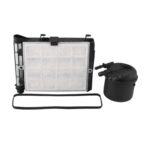Preparing for the 11 Plus exams can be a defining phase in your child’s academic journey. Among the various sections of this test, 11 Plus Creative Writing often stands out as both a challenge and an opportunity. It’s not just about telling a story—it’s about showcasing structure, imagination, vocabulary, and grammar under exam pressure. For many students, mastering this skill requires more than natural talent; it needs guided practice, strategic understanding, and creative support.
In this post, we explore how you can help your child succeed in 11 Plus Creative Writing and why a structured approach can make a lasting impact.
Understanding the Importance of 11 Plus Creative Writing
The 11 Plus exam aims to assess a student’s readiness for grammar school. While some regions focus more heavily on verbal and non-verbal reasoning, others like CSSE, Kent, and private school exams include a dedicated creative writing section. This section typically asks students to write a story or descriptive piece in response to a prompt. They may be asked to write a continuation of a given scenario, describe a scene, or craft a complete narrative. The goal is to evaluate a child’s ability to express themselves clearly and creatively within a time limit. Good creative writing in the 11 Plus exam should demonstrate:- Clear structure (beginning, middle, and end)
- Effective use of grammar and punctuation
- Rich vocabulary
- Sensory detail and figurative language
- A strong voice and tone
- Adherence to the task prompt
Common Challenges Students Face
Even bright and articulate students can struggle with timed creative writing. Here are some of the most common hurdles:- Writer’s Block – Students often freeze when asked to come up with ideas quickly.
- Time Management – Children may spend too long planning or writing the beginning, running out of time for the rest.
- Structure Issues – Without planning, stories may lack cohesion or a proper conclusion.
- Overuse of Dialogue or Description – Students sometimes over-focus on one aspect of writing, making their stories unbalanced.
- Repetitive Vocabulary – A limited vocabulary can reduce the impact of otherwise well-structured stories.
How to Prepare Your Child at Home
While school assignments help, they may not offer the targeted preparation needed for 11 Plus creative writing success. As a parent, here are some ways you can help:1. Daily Writing Prompts
Encourage short daily writing exercises based on different prompts—adventure, suspense, mystery, or descriptive scenes. This improves fluency and builds confidence.2. Teach Planning Techniques
Train your child to plan stories using frameworks like “Five-Part Story Structure”: introduction, build-up, problem, resolution, and ending. Planning helps ensure the story stays on track.3. Focus on Vocabulary
Create word banks with powerful verbs, descriptive adjectives, and sensory words. Have your child include a few strong vocabulary words in each story.4. Model Story Examples
Read high-quality story samples together. Discuss what works well and how the story is structured. This develops your child’s writer’s eye.5. Practice Under Timed Conditions
Time-bound practice is crucial. Use a timer to simulate exam conditions and build writing stamina.6. Give Constructive Feedback
When reviewing your child’s work, highlight both strengths and areas for improvement. Focus on clarity, grammar, structure, and creativity.When to Consider Professional Support
Although home practice is important, many parents find that professional guidance offers significant benefits. A trained tutor or specialist program can:- Provide expert feedback
- Identify gaps in knowledge
- Offer model answers and techniques
- Track your child’s progress over time
Why Learn2Write Stands Out
Learn2Write offers tailored resources and support for young writers preparing for the 11 Plus. With a focus on creativity, grammar, and structure, their learning tools help students understand what examiners are looking for. Their method isn’t just about writing stories—it’s about mastering techniques that make stories effective and engaging. Whether through worksheets, online sessions, or guided feedback, Learn2Write supports your child’s writing development at every stage. Real Student Success StoriesMany children have seen measurable improvements in both confidence and performance after using dedicated writing support services. One parent shared: My son always struggled with planning stories. After using Learn2Write, he now confidently creates stories with a clear beginning, middle, and end. He estarted to enjoy writing for fun!” Another student said: I used to get stuck with what to write in the 11 Plus practice papers. After doing a few writing sessions, I started finishing my stories on time—and getting really good feedback!”Building Long-Term Writing Skills
Beyond exam success, creative writing builds lifelong skills. It teaches children to communicate ideas, think imaginatively, and engage readers. These are not just academic advantages—they are tools for personal expression and growth. Writing can also be deeply therapeutic. It allows children to explore their emotions, reflect on experiences, and build empathy. Encouraging this habit early can lead to better emotional development and self-awareness.Explore Creative Writing Courses for Deeper Learning
If your child enjoys writing or needs extra support, consider enrolling them in Creative Writing Courses. These programs can supplement their learning with fun, structured activities that align with their schoolwork and exam goals. Courses often include:- Narrative writing practice
- Descriptive and persuasive writing
- Comprehension and grammar improvement
- Regular feedback and progress tracking












